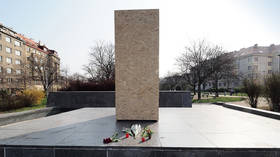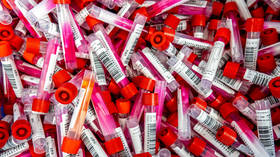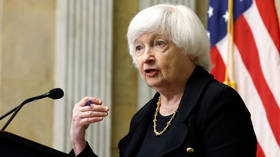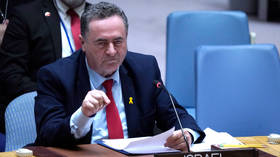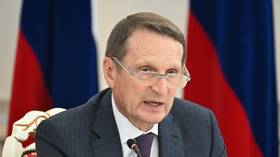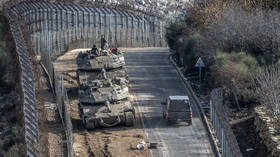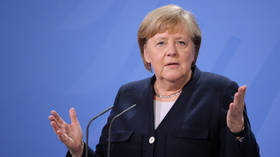Prague ‘spy thriller’: Western activists rail against 'fake news', but will believe anything if it villainizes Russia
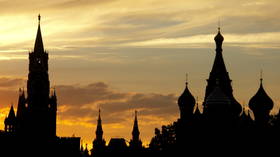
It is well known that some people always believe what they want to believe. Despite a lack of evidence and no coherent narrative, there are those who will accept anything which aligns with their already-held worldview.
A bizarre ‘story’ from Czechia is the latest installment in the ‘blame Russia’ game; a sort of ‘faith-based’ mass psychosis. If you pranked a friend with a fictitious anecdote, you'd label them ‘gullible’. But what do we call it when a group of highly influential and well-published scholars, journalists, and commentators does the same?
For Russia analysts, this phenomenon is age-old. There are many within the Western journalism, activism, and think-thank communities who will believe ANYTHING negative about Russia. Evidence, proof, data, or documentation be damned – if it's about Russia and it's bad, it's automatically true.
Also on rt.com ‘Another hoax’: Kremlin dismisses reports of poisoning plot against Czech officials who tore down Konev monumentLast week, it happened again. A report published in Czech news magazine Respekt, based on “anonymous intelligence sources” and presented with no supporting evidence, stated that a Russian agent carrying the highly potent toxin ricin arrived in Czechia to assassinate Prague Mayor Zdenek Hrib and two others.
Social media went into a frenzy, accusing Moscow of lethal force. Some suggested that the ‘murder attempt’ was in retaliation for Prague renaming the square in front of the Russian Embassy after Boris Nemtsov, a murdered former Russian deputy prime minister. Others mooted that the removal of a statue of Marshal Ivan Konev, the man who liberated the city from the Nazis, had riled up the Kremlin so much that it was driven to deadly revenge.
But there's a problem: the story is dubiously sourced, missing essential details, and completely unproven. The would-be assassin is not named, and there is no circumstantial evidence – never mind concrete proof.
Russian Presidential Spokesman Dmitry Peskov was quick to call the plot a “hoax,” and there has still been no confirmation from the Czech government
There are other glaring holes in the story.
The last record of ricin allegedly being used in a political assassination attempt was in 1981, when it was found in the system of Polish CIA agent Boris Korczak. He survived, and later famously sued his bosses at Langley. Furthermore, there is no record of modern Russia targetting foreign government officials in murder plots. Instead, the cases where the finger has been pointed at Moscow – for example, GRU turncoat Sergei Skripal and FSB/KGB defector Alexander Litvinenko, who joined Britain's MI6 – have involved Russians who are viewed as traitors at home.
Also, the idea that Russia would want to kill some random mayor in Czechia seems bizarre because there's no obvious gain for Moscow. The renaming of Soviet-era streets and removal of statues has been common all over Eastern Europe in recent times – Poland and Ukraine have pulled down dozens and changed names all over the place – and all Moscow has done is issue statements condemning the moves. Why such measures for Konev and not for, say, Grigory Petrovsky, whose moniker was removed from an entire city – Dnepropetrovsk, Ukraine's fourth biggest – in 2016?
Despite the dearth of proof, Russia's ‘attempted murder’ of Hrib has been accepted as gospel truth. People always believe what they want to believe.
This story is the latest in a long line of nonsense fabrications, once presented and accepted as fact.
In October 2014, magazine Politico alleged that President Putin had approached Poland offering to divvy up Ukraine between the two. While the usual suspects ran with the story, the original subject of the yarn – Radoslaw Sikorski – quickly backtracked, saying that he had been “over-interpreted,” and that the Russia-Poland meeting never even took place.
In March 2015, rumors began to emerge that President Putin had died. Discussion of who would follow him as the next Russian leader (and a potential succession war) was rife. After a week of speculation and poorly masked glee at the possible passing of the president, Putin emerged alive and well.
Missed him? #Putin's first public appearance amid 10 days of MSM hysteria (VIDEO) http://t.co/SjXseS6VBfpic.twitter.com/EVfMoae7ZZ
— RT (@RT_com) March 16, 2015
For some activists and journalists, it was a fun few days of anticipation.
Newsweek magazine took the nonsense another step further in December 2017, claiming that Putin was preparing for World War III. The piece, based on a single named source, was shared hundreds of times.
New cover story: Putin is preparing for World War III—is Trump? https://t.co/gQUnKcfiHQpic.twitter.com/hOKTIMSRZh
— Newsweek (@Newsweek) December 14, 2017
When it comes to Russia, the vultures are perpetually circling, incessantly hunting to find a misdeed. Any rumor is taken as fact, any accusation as gospel, any suggestion as truth. If it depicts Russia as evil, people will always believe.
It's not only Russia, of course. The phenomenon was also visible last week when the world's media speculated that North Korean leader Kim Jong-un was on the brink of death, or perhaps already six feet under. Twitter turned into a sea of celebration, with the thinly veiled glee of ‘foreign affairs experts’ dominating the news feed. Then Kim emerged just days later, opening a fertilizer factory and far from the Grim Reaper's grip.
Like this story? Share it with a friend!
The statements, views and opinions expressed in this column are solely those of the author and do not necessarily represent those of RT.
